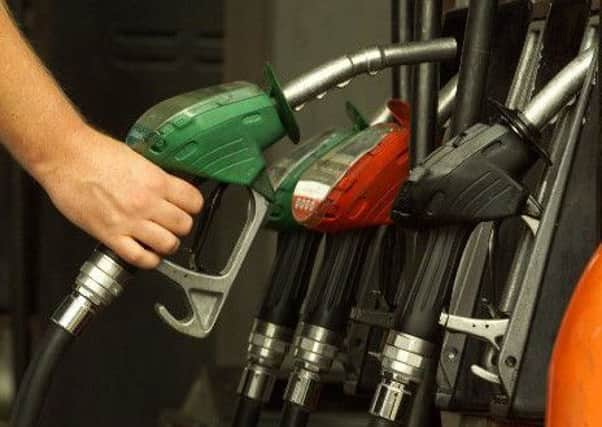Rising fuel prices drive inflation to 0.5% in June


The Office for National Statistics (ONS) said the increase in the consumer prices index (CPI) measure of inflation, which stood at 0.3 per cent in May, was driven by higher motor fuel prices while the Euro 2016 football tournament helped drive up the cost of air fares.
The ONS said a 10.9 per cent rise in air fares this year was the largest May-to-June movement on record, although it pointed out that such prices are “highly variable”.
Advertisement
Hide AdAdvertisement
Hide Ad“Motor fuel prices also rose by more than a year ago, with petrol and diesel prices rising by 2.3p and 2.6p per litre respectively between May and June,” it added.
Tom Stevenson, investment director for personal investing at Fidelity International, said: “While the latest inflation figure is still some way off the Bank of England’s 2 per cent target, the UK’s decision to leave the European Union has seen the outlook for inflation revised significantly upwards.
“Forecasts now suggest we will see inflation reaching 1.7 per cent by the end of 2016 and then exceeding the 2 per cent target during the first quarter of 2017. These revised forecasts have been underpinned by the expectation that sterling will remain weak in the medium to long term, resulting in the cost of imported food, energy and manufactured products being pushed up.”
Last week, the Bank of England surprised the market by voting to keep interest rates on hold at 0.5 per cent, but its monetary policy committee (MPC) now looks set to cut rates next month as members weigh up the economic impact of Britain’s decision to leave the European Union.
Stevenson added: “Higher inflation would usually raise the prospect of an early interest rate hike but the opposite still looks more likely than not at the Bank of England’s next ‘Super Thursday’ on August. With the outlook for the UK economy remaining uncertain and concerns that we could be heading towards recession, the odds are still on Mark Carney cutting rates or restarting the quantitative easing printing press.”
Martin Beck, senior economic adviser to the EY Item Club, said the bulk of the data for June was collected before the EU referendum so was “unaffected by sterling’s subsequent plunge”.
He added: “This should begin to feed through from next month and will become an increasingly important factor. Alongside this, today’s producer prices data suggested that some modest inflationary pressures were already building in the supply chain, with factory gate prices rising for a fifth successive month.
“These factors are likely to push the CPI measure above 2 per cent by early 2017. However, we believe that concerns that inflation will spike up to 5 per cent or more have been overplayed. We expect the peak in inflation to be around 3 per cent or even lower if the pound continues to display the resilience that it has demonstrated over the past two weeks.”
